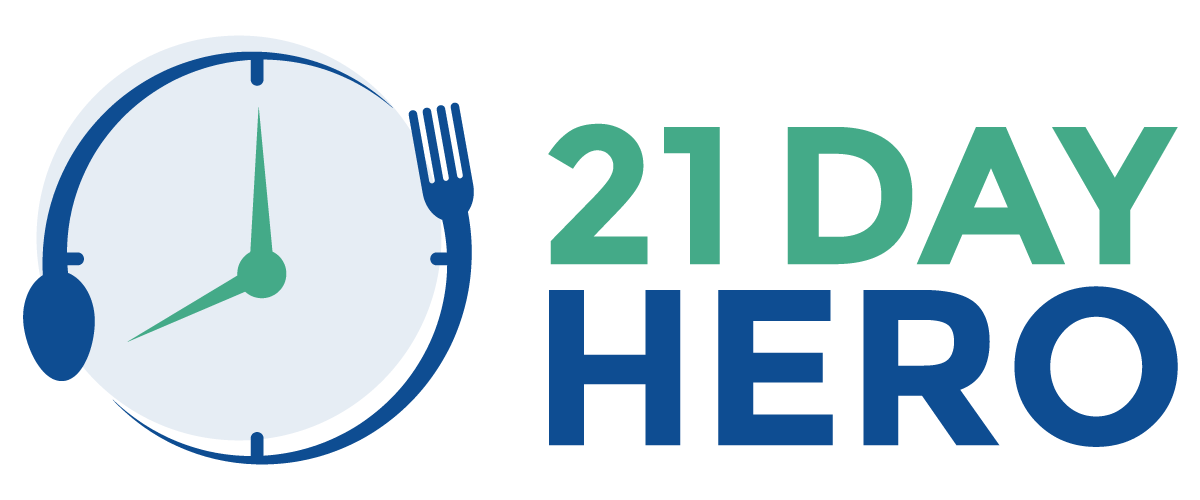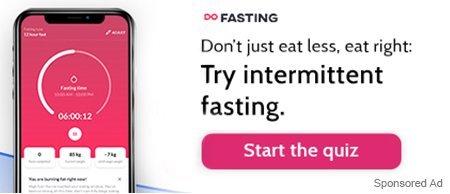What Is Intermittent Fasting | Will Smoking Break A Fast | How Will Smoking Affect Your Body While Fasting | Will Smoking Reduce my Hunger | Will Marijuana Smoking Break my Fast
Intermittent fasting has become the go-to method for losing weight fast among people of late. While intermittent fasting is a popular way of achieving weight loss, improved health, and increased longevity, there is a lot of confusion among people who smoke and want to know if it hinders the objective of the fast.
Does Smoking Break a Fast?
If you smoke during a fast, it will not break a fast technically, but there are other health implications to smoking that will nullify the benefits of fasting. So, it is important to learn about what the cigarettes do to your body while intermittent fasting from a science standpoint. Cigarettes do not have any calories and won’t trigger an insulin reaction. We will dive deeper into this and give you all you need to know.
Does Nicotine Break a Fast?
Similar to smoking, any form if nicotine will not break a fast. However is you are taking an ingestible form of nicotine, be sure there are not any fillers or calories added to the product. Nicotine, similar to smoking has negative health implications that can nullify the benefits of fasting as well.
Experts on this topic have revealed that nicotine does not affect blood sugar levels. However, smoking during a fast is not advised, particularly for fasts lasting longer than five days. Smoking during the fast can cause nausea, dizziness, vomiting, a fall in arterial blood pressure, and other ill effects
But there are some stipulations and details you need to know first. This question has been a moot point for many fasters who smoke and want to know what activities and substances will affect their fasting goals. This article will examine the relationship between smoking and fasting and explore the science behind it. We will also consider expert opinions on the subject and provide clarity for smokers trying to optimize their fasting results.
Remember that this article in no way promotes smoking. The ill effects associated with smoking are widely known and need no introduction.

What Is Intermittent Fasting?
For the uninitiated, intermittent fasting is a diet method involving fasting for several hours in a day and eating food during the non-fasting hours. Although there are many variants of intermittent fasting, the most popular ones are 16/8 fasting, 5/2 fasting, and OMAD fasting.
Intermittent fasting has a lot of health benefits, including weight loss, lowering insulin resistance, lowering the risk of chronic diseases, autophagy, reduction in inflammation, improvement in heart health, possible prevention of cancer, anti-aging effects, and improvement in brain health.

How Will Smoking or Nicotine Affect Your Body While Fasting?
Specialists agree that there is an elevation of fasting blood sugar when a person smokes. This means that the test results on blood sugar fasting might be wrong because of the inhalation of nicotine, the active ingredient in cigarettes. This is a big problem because it may lead to an incorrect diagnosis of diabetes in a smoker.
Based upon this premise, a study was conducted that analyzed 24 subjects who smoked two-thirds of two cigarettes in a time span of 60 minutes. Their fasting blood sugar levels were tested before, during, and after smoking. Here’s an excerpt from the summary of the tests:
“ When 24 normal subjects under basal conditions smoked two-thirds of 2 cigarettes, there was no appreciable rise in the levels of the fasting blood sugar and the epinephrine-like substances of the systemic venous blood.”
Hence, there was no apparent rise in blood sugar levels whatsoever, so there was no high blood sugar that could prevent the process of ketosis.
However, smoking (Nicotine) does cause insulin resistance. Smoking affects your cells’ ability to use insulin optimally. There have been studies that have shown that diabetic patients who also smoke need higher doses of insulin to regulate their blood sugar levels effectively. In the long term, this will result in high blood sugar, leading to heart disease and damage to the kidneys, nerves, and eyes.
However, while cigarettes affect how the human body uses insulin, they don’t cause the release of insulin when you smoke. Again, if the cigarette you smoke contains sugar, it is a different matter altogether.
If the cigarette brand you smoke has added sugar, it will usually not be enough to trigger an insulin reaction. However, in theory, depending on the brand you smoke, the quantity of sugar in the cigarette, and your smoking rate, it could theoretically cause an insulin reaction. No studies have been conducted on this subject yet, but it is a distinct possibility according to logic.
To work around this potential problem, you could try to smoke rolled cigarettes with natural tobacco. These cigarettes have no added sugar and contain fewer harmful chemicals than factory-produced commercial cigarettes. Rolled cigarettes with natural tobacco are the right choice for a fast, besides being the correct fit for everyday smokers.
The apparent danger of a long fast of more than five days coupled with smoking is that your body will begin to use the chemicals it inhales as nutrients. While fasting for 5-7 days, your body will shift depending on internal nutrition.
Smoking during a prolonged fast can also lead to a fall in arterial blood pressure. This can cause you to faint, lead to convulsions, and, in extreme cases, cause death because of cerebral hypoxia. Cerebrum hypoxia happens due to a total deprivation of oxygen in your brain.
If you are fasting intermittently, smoking during a 16 or 24-hour fast should not be too much of a problem. However, if you want to do a longer fast, please consider what we discussed. After some days, you may see a decrease in cigarette cravings, and you may even stop smoking, but it’s not for sure, and in that period of smoking during long fasts, you could end up severely damaging your system.

Will Smoking or Nicotine Reduce my Hunger?
When you start practicing intermittent fasting, feelings of intense hunger can be a real dampener. You may find it hard to go for 24-48 hours without consuming calories. Smoking is known to reduce hunger and possibly help you get through the initial days of your fasting regime. However, if you have gone through the previous sections of this article, you know that smoking during a fast is not a good idea and can be dangerous for you.
One of the effects of smoking is that it increases your metabolism rate. This, in turn, will cause your heart to beat faster. This effect of smoking makes cigarettes one of the primary causes of heart disease.
However, increased metabolism means you will burn more calories while carrying out your normal bodily functions; it doesn’t translate to reduced hunger. This is why quite a few people will tend to put on weight after they stop smoking because their metabolism will revert to normal.
Nicotine can also lower the insulin levels in your blood, thus reducing food cravings. The leptin hormone controls your appetite. Leptin is used to regulate your body’s energy balance and inhibit hunger. Because leptin will increase with increased insulin levels, low insulin levels will directly affect your appetite.
Another interesting point to note is that smoking releases dopamine, which is the pleasure hormone in your body. Dopamine is also released when you eat foods with high sugar contents, like chocolate, candy, or soda. Hence, the dopamine rise associated with cigarette smoking will help to handle hunger cravings that you may experience with fasting.
Nicotine also has an adrenaline-triggering function that affects the musculature of the stomach. If this effect does persist, it will lead to a temporary feeling of diminished hunger.
Will Marijuana Smoking Break my Fast?

Marijuana is known to cause feelings of intense hunger, also called “munchies.” Hence, smoking marijuana will not help you suppress your appetite. However, if you have been smoking for a long time, you may become immune to hunger pangs post-smoking, and in that case, smoking marijuana will not have any effects on your fast.
There was research done on cannabis that followed 4657 test subjects for five years. The study regularly monitored their insulin and blood glucose levels over this period and concluded that cannabis could help reduce insulin resistance and lead to higher insulin sensitivity.
Hence, cannabis will not raise insulin and may even help with insulin resistance if you look at it in the long term. However, smoking cannabis is not recommended, and we are just stating the facts here. Do not take this as an endorsement to smoke up.
Conclusion – Does Smoking break a fast?
Now as you know, smoking is NOT good for you, no-brainer there! Intermittent fasting may help you recover from the toxicity of the smoking faster, but there isn’t data to support or otherwise. Smoking has long lasting effects on your overall health and well-being that can take time to recover from.
Smoking cigarettes will not break your fast. Smoking has no calories, has no effect on insulin levels, and does not impact your blood sugar in any way. If you have a couple of cigarettes during your fast, it won’t be of any consequence. However, we are not encouraging you to smoke, either. Medical professionals advise against smoking during a fast.
If you are unwilling to give up cigarettes, you may want to consider switching to hand-rolled cigarettes with natural tobacco. These are less harmful than factory-rolled cigarettes, which contain more chemicals. After you switch to organic tobacco, you stand a lesser chance of experiencing the harmful side effects of smoking during your fast.
Also need help fasting? Check out the Best Intermittent Fasting Mobile Apps we recommend to help you on your journey.












One Response
This comprehensive exploration of smoking’s impact on intermittent fasting provides valuable insights and warnings. It urges caution and highlights the potential risks, underscoring the importance of overall health while promoting a deeper understanding of the intricate relationship between smoking and fasting.